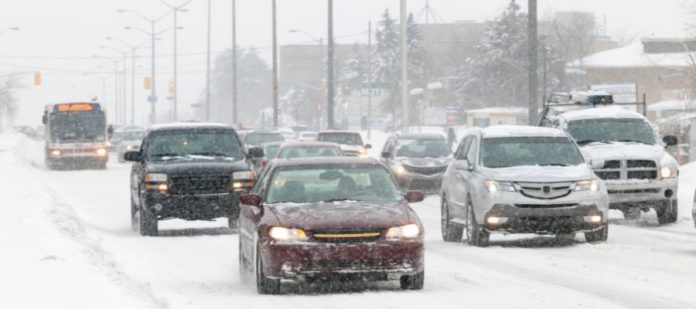The winter season is a magical time of year. The days are shorter, the nights are longer, and the holiday cheer begins. However, with the holiday season come snow, ice, and sleet. Being prepared to drive in these conditions could save your life. To prevent accidents and incidents, refresh your memory on safety tips and equip your vehicle with snow gear. To help prepare for the harsh conditions, here are a few safety tips for driving through the winter.
Reduce Your Speed
The most important tip for driving through the winter is to reduce your speed. Give yourself plenty of distance between your vehicle and the others around you. By lowering your rate, you make up for the decreased traction you have on the road, reducing the chances of sliding. If you don’t, your tires will spin and increase the chances of an accident.
Minimize Your Distractions
Although you should always minimize your distractions when you’re driving, you should especially minimize your distractions when driving during the winter. The temptation to talk on the phone, find your favorite song, or eat your fries is high, but it also comes with risk. It’s best to focus your attention on the road to ensure you and your passengers are safe.
Watch Out for Black Ice
If the pavement looks wet and it hasn’t rained, it’s most likely ice-covered—black ice results from snow or ice thawing but refreezing during the late afternoon or evening. You should pay attention to the weather conditions and observe the roadways. Black ice is incredibly dangerous to drive on, and it’s essential that you keep an eye out for slippery roads. If you drive in freezing conditions, remember to keep the steering wheel straight, stay calm, and don’t slam on the brakes if you feel your vehicle swerve.
Always Check Your Tires
You should check your tire pressure and tread more frequently during the winter—every three to four weeks. If your tires look worn down, it’s wise to replace them. You don’t want to risk driving on an icy road with busted tires. If you take that risk, you can find yourself in dangerous situations. Investing in roadside assistance is also important in case something goes wrong during the winter, from sliding to tires getting stuck in the snow. Always check your tires and ensure good traction.






















